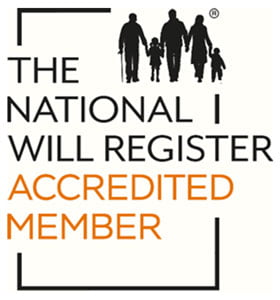Why family businesses should be more royal
The Firm. Monarchy Plc. The Royal Family’s monikers leave little doubt that underpinning the institution are well-oiled business practices.
This has become increasingly evident in recent years, as plans for succession to the throne have been implemented. The Queen has withdrawn from royal duties; younger royals have stepped up. It means the ‘business’ should transition smoothly through the generations.
But not all family businesses address the future with quite as much care. For some, it’s all about the here and now and ‘We’ll cross that bridge when we come to it’. Many of our clients are involved in family businesses, but prioritise arranging their personal affairs: their Will, Lasting Powers of Attorney, trusts. While that’s a great start, it’s really important to think about the business side of life too, and to ensure all of your future planning fits together.
What does business succession planning mean?
It’s about how you’ll keep the business going, once key people step back, retire or pass away. Who will take over their role(s)? How will the right skills and knowledge be retained in the business? Who will rise through the ranks to become your next leaders?
These are questions that all businesses should have in mind and should be addressing long before the plans need to come to fruition.
What does succession planning look like in family businesses?
A family business has all the usual attributes of a business. Future planning should therefore involve an analysis of what the business will need in the months and years to come, and a plan to achieve those things. However, a family business has additional characteristics – some beneficial, but some potentially more problematic. It means succession planning in this context is likely to involve considerations that may not be in play in other businesses.
One incontrovertible factor is: relationships. Families are bound together in different ways to those who are simply in business together. Business partners can walk away. Families remain tied together, and they’re usually heavily invested in the company they’ve started or taken over from previous generations. The stakes may be higher in family businesses – the entire family may depend on it financially; families can be damaged when things go wrong. And the idea that the business is wholly owned and controlled by the family, with wealth generation, family reputation and legacy entirely in their hands, can mean there is even greater pressure on some family businesses to ensure they will continue for years to come.
Where to start with succession planning
Every business is different and so the baseline for planning will not be the same for all; some companies will have some level of exit planning mapped out (or at least contemplated), while others won’t have anything in place. But some of the things that will need to be discussed during the succession planning process are:
- What is the vision for the business’s future?
- What do the company documents say about succession?
- What are the relevant tax considerations?
- Timescales. When are key people looking to step back or to retire completely?
- What will the terms of those exits be (eg what will leavers be due from/looking to take out of the business)?
- How can exits be managed so that the business withstands the financial and practical consequences?
- Who will take the place of those leaving? Do they have the right skills and experience, or will they need to be trained up?
- Are the earmarked successors in it for the long haul? What terms would they want, and how should those be negotiated, agreed and formalised?
- What additional gaps may exist and how could they be filled?
- When should the process of handing over roles begin, and what should it involve?
In practice, the scope of succession planning is usually far wider, bringing in many more elements and drilling deeply into the types of issues I’ve highlighted. And getting this right – formalising a succession plan that will stand your business and your family in good stead for the future – takes time and expertise. That is as true in respect of a family-run business as it is in any other, even where the business has historically operated on the basis of trust and informality. In fact, I would argue that those businesses are potentially in more urgent need of proper planning, as the expectations of those running them, and those looking to take over, may be at odds.
First steps
Raising with your business partners the subject of succession planning is the obvious starting point. Next, get in touch with a lawyer who can help you work through the planning process. Make sure to give them all the information, including company documents. And do bear in mind that it’s so important to bring your personal planning in line with your business planning to protect your own position, as well as your company’s.
For advice about business succession planning or personal planning, contact Emma Howlett or a member of the Private Client team on 0808 256 2917.








